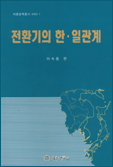This book reviews recent Korea-Japan relations. If Korean-Japanese cooperation during the second half of the Twentieth century has concentrated on economic development, cooperation in the twenty-first century will expand into the areas of security, global environment and peace. This book argues that diversification in the fields of cooperation and increased multilateralism in the two countries' cooperative ventures will be the future trend in Korea-Japan relations. By strengthening cooperation between the two governments, Korea-Japan relations have reached a point where there is a possibility for mutually beneficial relations. Myon Woo Lee, in his chapter entitled, "Korea's Policy toward Japan after the Cold War and Korea-Japan Relations," emphasizes the changes in policies towards Japan between the Kim Young-Sam and Kim Dae-Jung administrations and the different approach of the two administrations. Sook-Jong Lee, in the chapter entitled "The Political Economy of a Korea-Japan Free Trade Agreement," argues that a Korea-Japan Free Trade Agreement should be designed to complement the two countries' trade strategy based on Asian regionalism and industrial restructuring strategies dealing with overcapacity problems. Won Deok Lee, Professor at Kookmin University, wrote the chapter "Conflicts over History and Korea-Japan Relations." Kyu Chul Cho, professor at Hankuk University of Foreign Studies wrote the chapter entitled, "Korea-Japan Social and Cultural Exchanges and Mutual Recognition." Seong Chul Kim, in his paper entitled "Northeast Asian Cooperation and Korea-Japan Relation," analyzes how Korea-Japan relations are related to Northeast Asian cooperative efforts as a whole.
No : 2002-01
Publishing Company : The Sejong Institute
Date of Publication : 2002
Number Of Pages : 169 Page
Price : 5,000 Won

